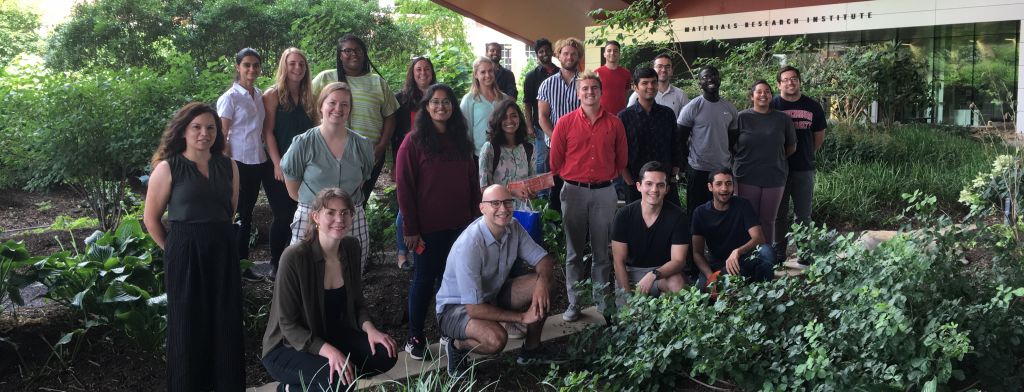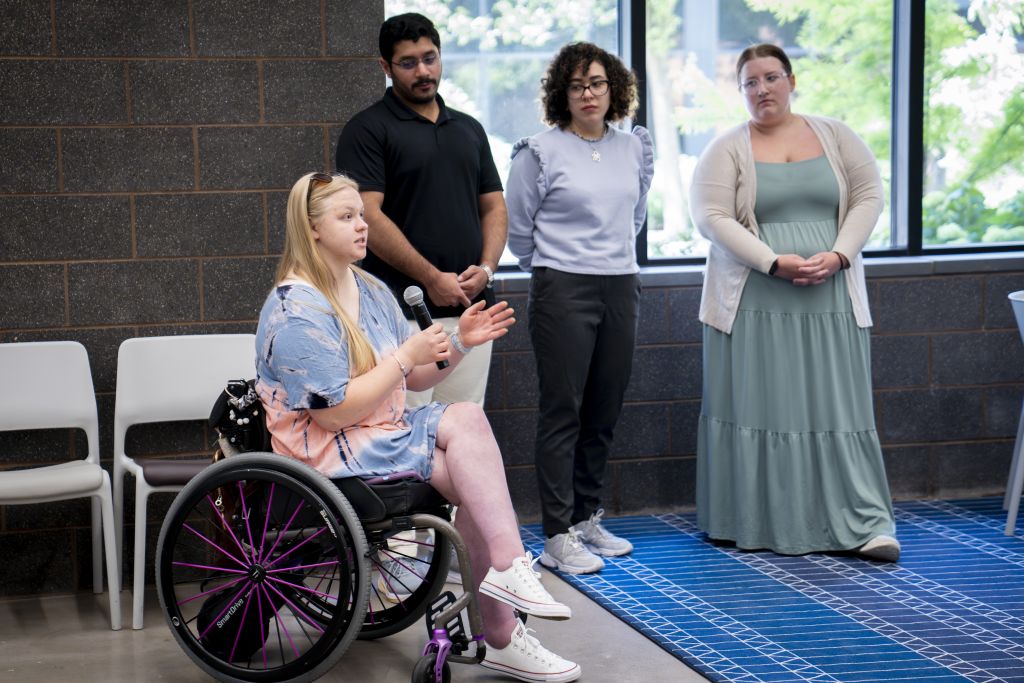
Applications are closed for the current cycle. Please watch for announcements in spring 2026 for the next round of applications.
Physiological Adaptations to Stress (PAS) is an NIH-funded (T32) interdisciplinary training program that prepares students to address research questions related to physiological stress adaptation using models of health and disease such as OneHealth. Value-added training in team dynamics and entrepreneurship through the Penn State MBA program further prepares PAS trainees for emerging careers in the biomedical sciences. Elective interest tracks include application of generative artificial intelligence (AI) or CIRTL teaching certification to further impact career readiness. Faculty trainers are associated with the Huck Institutes of the Life Sciences through the Colleges of Agricultural Sciences, Engineering, Health and Human Development, and Science.
NIH T32 Eligibility and Applying
Domestic and international students who have completed their first year of graduate study are invited to apply. Funding is awarded only to those students who have passed the qualifying exam by August 1. However, pre-qualifying exam students will be considered for provisional acceptance on a case-by-case basis. For the 2025 cycle, we can consider applications from both US and non US citizens. The award is for two years (so long as adequate progress has been maintained) starting August 1 of each academic year. In addition to providing NIH-level stipend and tuition, this prestigious award provides nominal travel support if presenting at a scientific conference. Only rising 2nd or 3rd year doctoral students can be considered for funded traineeships. However, students who apply but are not accepted for funding may still participate in the training program. Students funded as T32 trainees must defer any teaching responsibilities during their time as a paid trainee.
NIH T32 Application Process
Students must provide a one to two page CV and a copy of their graduate transcript. A concise description of current research activities form the bulk of the application as follows: the proposed thesis project title, general aims and hypothesis, and clear statement of the student’s role in project development (1 to 2 pages). Projects need not be in their final form, and preliminary data are not required, but encouraged. References (no more than 10) may be included on a separate page and are not included in the page total. A separate statement of future plans (up to 1 page) should specifically address how the student envisions the potential benefits of the training program on career trajectory upon graduation. A supporting letter from the research mentor is also required. The mentor support letter should include 1) a statement that the mentor supports all required coursework/training program activities, 2) a statement that the mentor will participate in the team teaching of capstone course PHSIO 510 and other aspects of the training program such as RCR training, T32 journal club, mentor training, and attending the annual program retreat, and 3) a statement of how the student’s research project will be supported. Following application review, a face to face interview will be conducted for application finalists. All materials must be submitted as a single PDF, and component parts should be single spaced with ½ inch margins.
Summary of Application Materials
- CV (1 to 2 pages)
- Graduate transcript
- Research Description/Student’s Role (1 to 2 pages)
- Statement of Future Plans/Relation to the Training Program
- Mentor Letter

